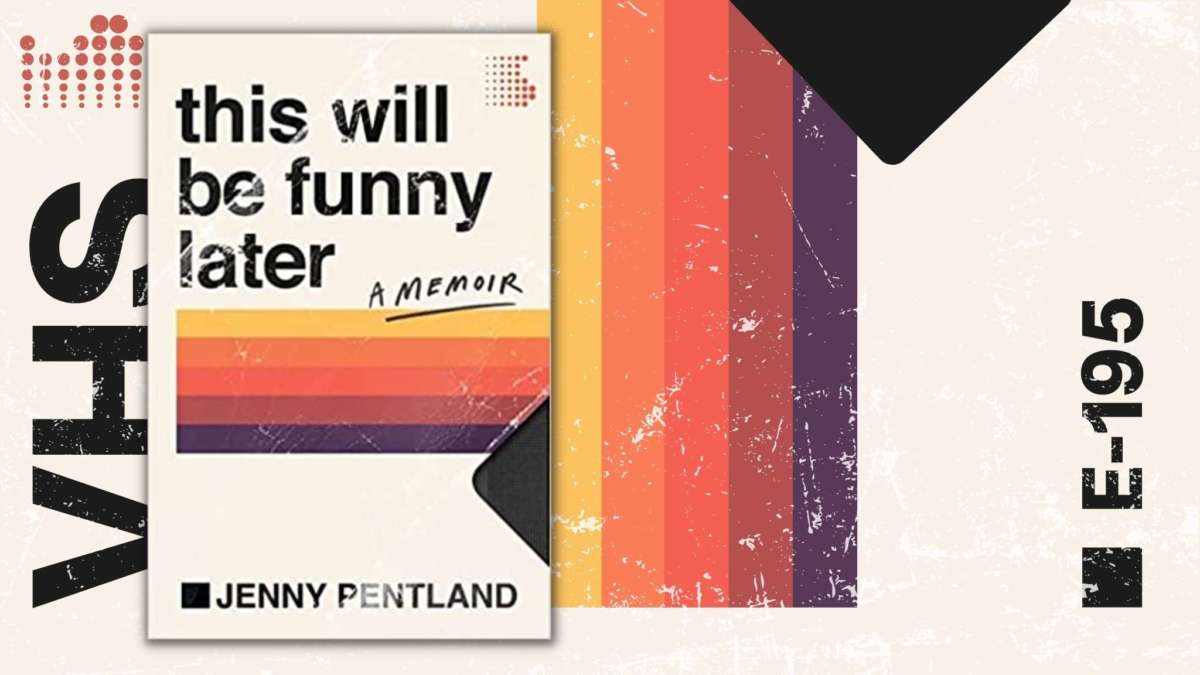This Will Be Funny Later: A Memoir by Jenny Pentland
If you are seeking a scathing exposé a la Mommie Dearest, you won’t find it in This Will Be Funny Later: A Memoir (Harper) by Jenny Pentland, daughter of Roseanne Barr and her first husband, Bill Pentland. The author is frank, brutally honest, at times vulgar, and writes at top volume, much as one imagines her self-described speaking voice, but this memoir is anything but rancorous. Self-deprecating humor, courage and resiliency are the hallmarks of this heart-wrenching, touching memoir. Jenny possesses a highly superior autobiographical memory (HSAM) and is possibly one of the rare individuals diagnosed with hyperthymesia syndrome, characterized by both a vivid, detailed memory and as someone who obsessively examines every detail of their life. She communicates these details clearly as she fearlessly describes what growing up was like with an outspoken, ever-controversial celebrity who was largely an absentee parent.
WORKING MOM LAUNCHES TO SITCOM STARDOM
The Pentland family was lower-middle-class, blue-collar and modestly upwardly mobile. In Denver, they transitioned from owning a single-wide trailer to a tiny bungalow and, finally, to a ranch-style home as their family grew, but with the arrival of a third child and Rosanne’s radical feminist sister living with them for a time, quarters were cramped. Bill worked days as a full-time postman while Roseanne worked evenings as a cocktail waitress, lobbing quips to customers for laughs and better tips. They pinched pennies, shopped at K-Mart, yard sales and thrift shops, and vacationed with Roseanne’s mother in Salt Lake City. “Aside from being raised half-naked and feral,” writes Pentland of her early childhood, “we were also being raised part atheist, part Jewish and part Wiccan, with a touch of pragmatism and voodoo thrown in.”
Both parents began writing comedy, gradually trying out routines in local clubs. Between their regular jobs and late-night gigs, Jessica, Jenny and Jake, who ranged in age from 9 to 6, became unsupervised latchkey children. Bill’s shock comedy proved unsuccessful, but Roseanne soon began working the larger Denver clubs developing her “Domestic Goddess” routine where she was discovered by established performers Louis Anderson and Dennis Miller. By August of 1985, Roseanne made her debut with Johnny Carson on the fabled overnight launching pad for aspiring comics: The Tonight Show.
The rocket had launched! Following a short-lived HBO series, The Roseanne Barr Show, she was tapped to create and star in a sitcom about a working-class family named the Conners. Roseanne, built around material drawn from Barr’s own life, quickly became the top-ranked television program in 1988, running for nine seasons. No one in the Barr-Pentland household knew how to cope with the upheaval in their family life brought by sudden fame complete with in-your-face-tabloid reporters and omnipresent, invasive photographers.
FAME ROBS KIDS OF THEIR CELEBRITY MOTHER
From about age 7 until she turned 18, Jenny and her two siblings were powerless pawns — careening steel balls ratcheting around in endless play inside the pachinko machine that was their life. Their parent’s marriage ended in public acrimony with every adulterous detail covered regularly by tabloids. Roseanne married Tom Arnold, a younger writer from Roseanne, four days after her divorce was final. This marriage proved a low point in all their lives. After relocating to California, the kids were loosely supervised by a series of dubious nurses (one infamously using PCP) and untrained childminders with few qualifications and little communication with either parent.
Unlike the Pentland children, who couldn’t reach their mother directly and saw her infrequently, the show’s young actresses interacted and communicated with Roseanne almost daily while on set. Ironically, “Which one are you, Darlene or Becky?” was the question most often asked of Jenny and her older sister, Jessica, with the assumption their lives mirrored the sitcom. They had been coached not to answer such questions, but it would have been an emphatic “neither!” They were human flotsam — wreckage floating in the wake of their parents’ narcissism, focus on career building and intense fighting. It’s a miracle that Jenny, who endured eating issues, “fat camps” and institutionalization in addition to her parents’ neglect, survived to adulthood, let alone thrived.
CAPTIVATING STORY’S CAUTIONARY PARENTAL TALE
Luckily, there is a happy ending. Jenny left home at 18, studied to get her GED, married young and quickly realized her lifelong dream of motherhood. The couple has five sons. They are farm managers who live on her mother’s 50-acre macadamia nut and goat farm in Hawaii. They have even worked as a family on later television projects.
If you are seeking great literature, This Will Be Funny Later, which reads like extended, stream-of-consciousness Twitter feeds, may not satisfy. It is, nonetheless, captivating. It delivers a life lesson to parents: love and real conversation with children mean more than any amount of money. It will be essential reading for any fans of the long-running sitcom Roseanne who crave insider information. With a wealth of topics to choose from, not to mention its distinctive dust jacket design, it could keep book discussion groups engaged for hours, and readers will want to stand up and cheer for Jenny Pentland.






